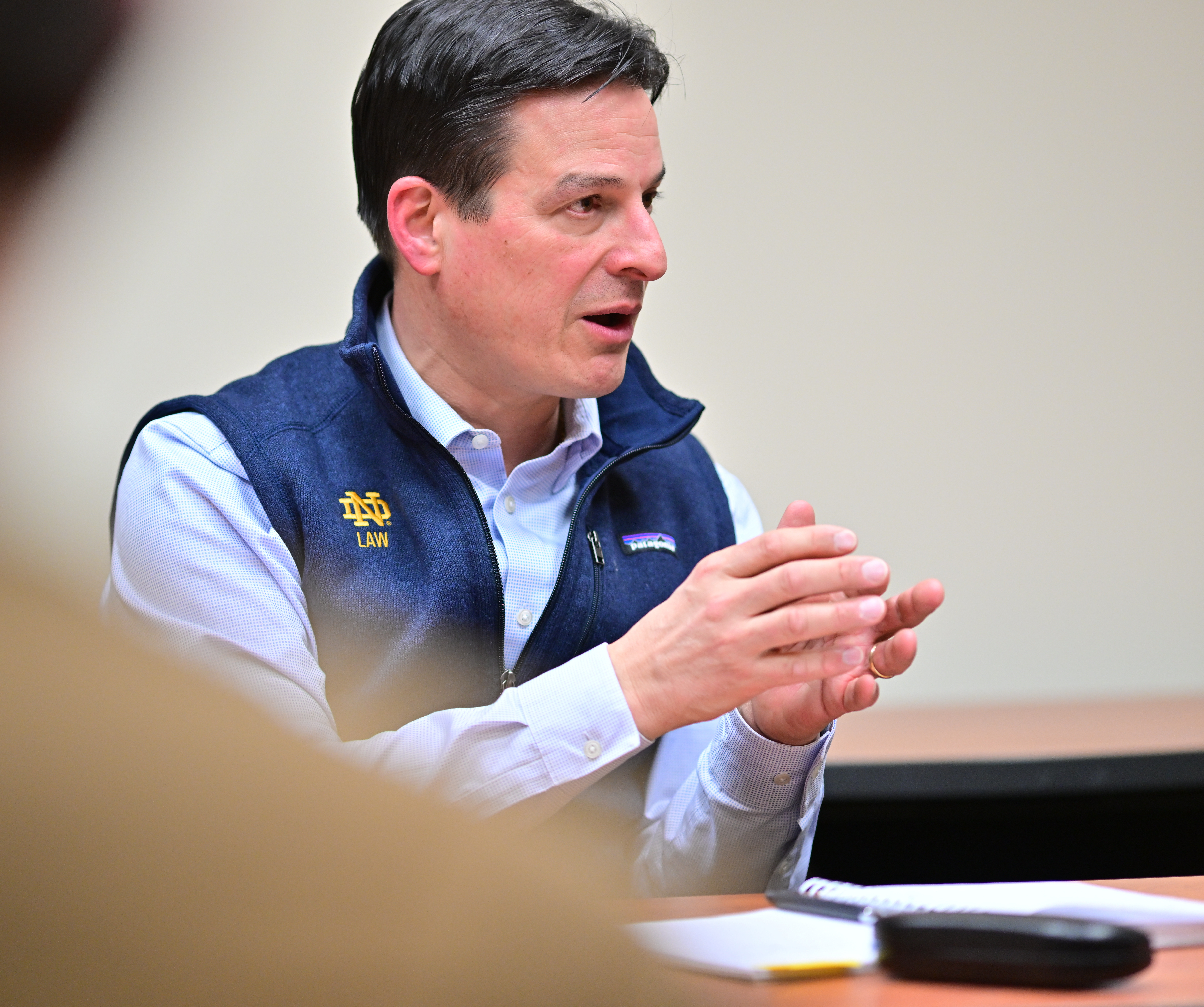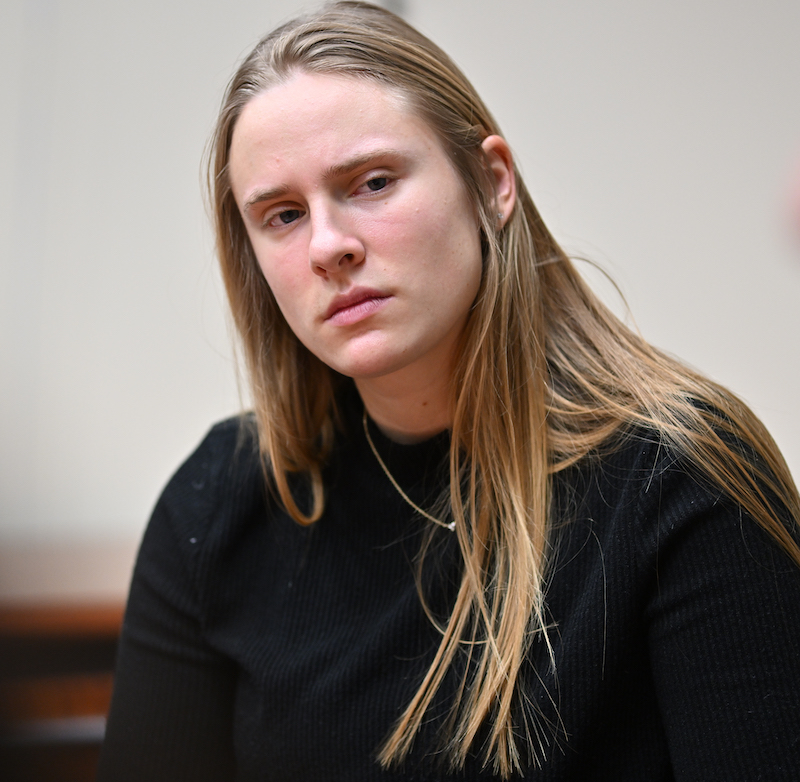
What is research?
That is a question that seven students have discovered practical answers to since joining the Kellogg Institute’s pilot Kellogg Developing Researchers (KDR) program at the start of the spring 2022 semester.
“I was telling my professors, ‘I want to do research.’ But … how do you start? It’s really daunting when it comes down to it,” says sophomore Elizabeth Stifel, who is studying political science, global affairs and data science. “We forget we have to start somewhere, so having someone walk you through the fundamentals on to important work is super fun and exciting.”
 Beginning with the lecture “What is Research?” by Kellogg Institute Director Paolo Carozza, Stifel and six other students are learning fundamental best practices and developing research skills through a variety of quantitative and qualitative workshops and trainings. Since the start of the spring semester, most of these students have already attended more than the minimum requirement of 3 trainings/workshops.
Beginning with the lecture “What is Research?” by Kellogg Institute Director Paolo Carozza, Stifel and six other students are learning fundamental best practices and developing research skills through a variety of quantitative and qualitative workshops and trainings. Since the start of the spring semester, most of these students have already attended more than the minimum requirement of 3 trainings/workshops.
“This program trains and prepares students to do their own research in the future and to provide support now as research assistants to professors across the University of Notre Dame,” says Kellogg Associate Director Holly Rivers, who designed the KDR program to cultivate students’ research skills and knowledge and to support professors with short-term research projects.
“Being a part of the Kellogg Developing Researchers program will benefit students far into their careers,” she says. “We start by defining research and guiding them in navigating the comprehensive resources already available on campus,
Stifel says she didn’t know the university
“Our library is so powerful, and they have so many workshops all the time, and I had no clue,” she says. “They opened us up to a whole range of workshops – online, pre-recorded and in person.”
In addition to training, Stifel says that the KDR program has provided a valuable community of peers committed to building their research skills and growing professionally. It’s also given her a pathway to work as a paid research assistant in her field of interest.
“I spoke with the professor last semester, and I’m taking his class now,” says Stifel, referring to Daniel Miller, a new Kellogg faculty fellow and associate professor of environmental policy. “It was a ‘wow moment’ to find someone who’s doing exactly what I want to do in life. Working with a professor is one of the most meaningful things you can do, and I feel like I found a good match, which I’m forever thankful for.”
 Equipped with what she has learned so far, Stifel has started working with Miller on his project studying
Equipped with what she has learned so far, Stifel has started working with Miller on his project studying
“She has been to Ethiopia and generally knows the context, and she has developed and is developing good quantitative data skills that are needed for this project,” says Miller. “She has training in relevant methods that have allowed her to be basically working at a graduate school level as an undergrad. She’s building those skills through this work.”
Stifel finds that her training through KDR feels even more meaningful and is “clicking a little bit more” now that she’s working with Miller.
“I’m actually using one of the same data sets my dad used for different reasons,” she says. “I was young when we were there. It’s cool to be doing research – not the same level of work my dad is doing – but I’m getting there, you know?”
Stifel isn’t the only student in the group already putting her training to use. Chizoma Duru, a West Nigerian first-year undergraduate studying political science and French, is working with Lakshmi Iyer, Kellogg faculty fellow and associate professor of economics and global affairs, on a research project looking at the role of women in city-level boards and commissions across the United States.
“I’ve been interested in Kellogg from the time I got to campus,” says Duru, who had done some research on women’s marginalization in African political spaces when she attended the African Leadership Academy in South Africa before coming to the University of Notre Dame. “I was attracted to Professor Iyer’s work because she was studying women’s political participation in Asia, and I was doing it in Africa.”
Duru says she’s already learned so much from participating in the KDR program, like how to narrow the focus of her research, how to select reliable sources, and how to write research papers. And she’s ecstatic to be working with Iyer.
“It’s wonderful to see how students are shaped by these experiences and how they develop into independent researchers,” says Iyer. “This is a fantastic way of getting them involved in research very early. It benefits both students and faculty – we get help with our very data-intensive projects, which we can’t do all alone, and students get a really early introduction [to research]. A lot of learning by doing.”
Duru agrees, “I’ve already picked up on so many things I can incorporate into my own research.”
Because the KDR program has had a significant impact on Duru’s understanding of and approach to research, she’s eager to recommend the program to other students.
“If you’re going to do research, you need this,” says Duru. “Rub minds with people going in a similar direction. You’re getting these skills. You’re getting the opportunity to connect with professors you want to work with, and you’re already familiar with [the fundamentals] because you attended that workshop or built that skill under this program.”
Kellogg is continuing to develop and expand the KDR program following the successful spring pilot. For more information, visit the website.





